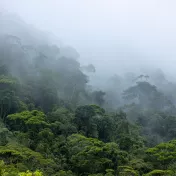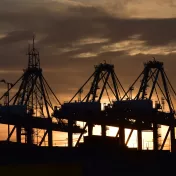Unprecedented forest fires around the world, floods, skyrocketing grain prices – we see it every day: the climate crisis is hitting us right now and threatens to get much worse. The Intergovernmental Panel on Climate Change (IPCC) confirmed this more clearly than ever in its new Assessment Report in August. This decade is crucial – if we do not act now, we will no longer achieve the goal of the Paris Agreement to limit global warming to 1.5 degrees Celsius.
Germany and the EU bear a special responsibility for combating the climate crisis. On the one hand, they have built their prosperity for centuries on burning coal, oil and gas. On the other hand, they have the capabilities to manage the transformation into a climate-neutral economy. To achieve this, Germany needs a federal government that quickly phases out coal, oil and gas and makes climate protection a top priority. The upcoming federal election must therefore be considered as a climate election.
But the responsibility of the next federal government does not end at the borders of Germany or the EU. What we do or don't do in Europe, our food and our trade system, have an impact on other parts of the world. This can be seen, for example, by looking at the destruction of forests in the Mercosur economic area (Argentina, Brazil, Uruguay and Paraguay). After all, the EU is the second-largest buyer (following China) of the agricultural products that are particularly fueling deforestation there: beef and soy.
In June 2020, forest fires in the Amazon reached their highest number in 14 years, largely attributed to agricultural fire raisings and exacerbated by changing climate conditions. A few weeks ago, scientific measurements showed for the first time that parts of the Amazon, especially in the southeast, have gone from being a greenhouse gas sink to a source: The forest emits more carbon dioxide through deforestation, fires and drought than it requests through tree growth. This trend must be stopped or the goals of the Paris Agreement will become unattainable.
Deforestation in Mercosur affects not only the Amazon, but also the Atlantic Rainforest, the Cerrado and Gran Chaco savannas. In these habitats, the expansion of cattle pastures and soybean fields is the main cause of deforestation, a great part of it for export to Europe. Export-driven deforestation in Latin America not only threatens the stability of the global climate, but also destroys biodiversity and leads to human rights violations, especially of indigenous people who live in and of the forest. Traditional knowledge and identity, and often enough the people’s health and lives are destroyed. It is for this reason in her illustration of this article, the artist Ana Hupe compares the burning forests to the burning of the Brazilian National Museum.
More international cooperation is needed to curb deforestation. Exporting and importing countries, as well as major trading companies, must take responsibility. The United Kingdom will host the World Climate Summit in Glasgow in November and has already announced that the issue of deforestation will be on the agenda. Stopping forest destruction should also be a topic at the UN Biodiversity Summit, which has been postponed several times and is scheduled to take place in Kunming, China, in spring 2022. After all, as the world's largest importer of products linked to deforestation, China also bears a strong responsibility.
The EU, in second place, must also take responsibility now in order to make these international negotiations a success. After all, only those who act themselves credibly can demand the same from others. For example, the EU must not ratify the free trade agreement with Mercosur, because it contains no effective rules to protect human rights, the climate and forests, but instead provides incentives to import soy and meat. The planned EU supply chain law and other regulations should also ensure that companies are no longer allowed to import agricultural products into Europe that have been proven to fuel deforestation.
Can we make this happen? Yes. But to do so, the next German government must focus on climate and biodiversity protection and implement responsible trade policies – in Germany, the EU and globally.
Lutz Weischer and Christoph Bals
The blog article was originally published in German in the WEITBLICK issue 2/2021






